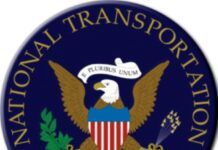Who Can, Who Can’t, And Who Will Anyway…
AOPA says San Mateo County (California) is taking on responsibilities that belong to the FAA, but the FAA isn’t so sure. Earlier this month, AOPA sent a pointed letter to the San Mateo Board of Supervisors saying that a new ordinance requiring identification checks of student pilots treads on federal authority. In the letter, AOPA Counsel Kathleen Yodice said the ordinance “is a violation of federal law because it attempts to regulate in the aviation security field, a field already occupied by the federal government.” But Jerry Snyder, spokesman for the Pacific region of the FAA, said in a written statement the agency’s toes aren’t really feeling stepped on … at least not yet. Snyder said that while the FAA has “some concerns” about the ordinance, the county “has a legitimate right to maintain a security posture in accordance with Transportation Security Administration guidelines.” He said the FAA wouldn’t want the new rules to prevent legitimate flight school operations but until it does they’ll be staying out of it.
NOTE: AVweb’s coverage includes Mr. Snyder’s statement, in Adobe’s Portable Document Format, free readers for which are available at Adobe’s Web site.
…Of Pilots And Bureaucrats…
Meanwhile, Jerry Hill, the president of the San Mateo Board of Supervisors, told AVweb AOPA doesn’t understand the new ordinance or its impact. The way Hill (a commercial, multi-IFR pilot) sees it, the county is just taking care of business at Half Moon Bay and San Carlos airports. “We are just doing some checking to make sure the businesses at the airport are doing what they’re supposed to be doing,” said Hill. The ordinance, passed in mid-October, makes it a condition of a flying school’s airport lease that all ab initio students complete a questionnaire that delves into their personal and employment history. The local sheriff’s office checks the answers and if it finds any false statements, the flying school must cancel the training or risk losing its lease. Hill said it’s simply an attempt to ensure students are who they say they are. Of course, the FAA’s deputy chief counsel James Whitlow, in a letter dated October 15, 2002, responding to a separate situation in Michigan, said that state legislation requiring the collection of “personal information from prospective students … would likely intrude into an area that Congress has pre-empted. Congress has reserved to the Administrator the authority to regulate ‘… civilian schools giving instruction in flying …'”
NOTE: AVweb’s coverage includes the San Mateo Ordinance and Mr. Whitlow’s letter, both in Adobe’s Portable Document Format, free readers for which are available at Adobe’s Web site.
…AOPA’s Tightrope Walk
AOPA spokesman Warren Morningstar said numerous court precedents give sole authority over aviation security to the FAA and his group is afraid that local regulations like those in San Mateo will crop up elsewhere, creating a patchwork of rules and qualifications. The California issue goes hand-in-glove with the court fight AOPA has taken on in Michigan, where the state wants to require background checks on student pilots. Morningstar said it’s tricky ground for AOPA because criticizing these initiatives gives some the impression that AOPA is soft on aviation security. Morningstar said nothing could be further from the truth and that AOPA has consistently lobbied for objective and effective ways of trying to keep terrorists out of the left seat. Those efforts, he says, call for more sophisticated measures than the San Mateo questionnaire. “It requires the development of intelligence (on terrorist operatives) and cross-referencing between applicants (for pilot certificates) and the terrorist watch list,” he said. Morningstar said it’s his opinion the ordinance is politically motivated by local government officials who want to give the impression they are doing something about terrorism. “It’s a feel-good kind of thing,” he said. Your mileage may vary….


































